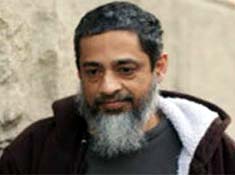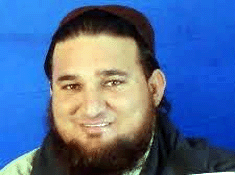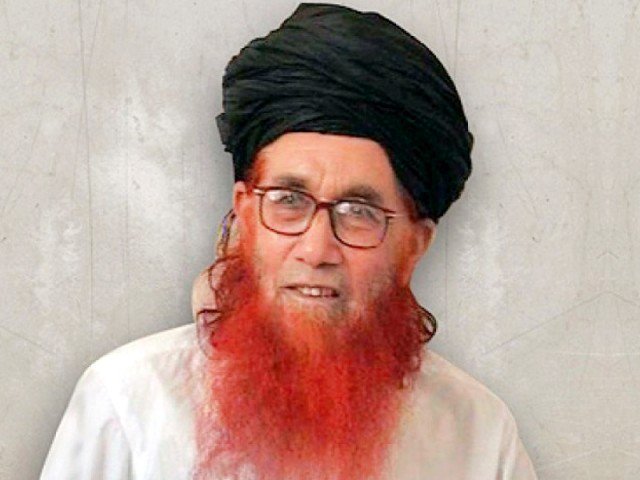Articles by Amir Mir
Ex-ISI chief’s tenure to be remembered for wrong reasons

ISLAMABAD: The two and a half year tenure (March 2012-November 2013) of Lt Gen (retd) Zaheerul Islam as DG ISI will be remembered for all the wrong reasons especially for his overwhelming involvement in politics, his frequent failures to preempt a series of major terrorist attacks on important installations across Pakistan and last but not the least, for muzzling the Geo TV network.
Ranked by Forbes as 52nd most powerful person in the world in 2013, Zaheerul Islam was elevated as the 20th ISI chief in March 2012 on the recommendation of the former DG ISI Lt Gen (retd) Ahmed Shuja Pash whose own tenure (October 2008-March 2012) was overshadowed by a single event – the killing of al-Qaeda chief Osama bin Laden by US Special Forces in Abbottabad on May 2, 2011. Pasha, who too was fond of interfering in politics and whose role in the memo-gate scam made him more controversial, came under intense criticism at home not only for his drastic failure to detect the world’s most wanted terrorist who was hiding in a garrison town but also for his blatant failure to preempt the US Navy SEALs from conducting a massive commando operation deep inside Pakistan to take out bin Laden.
Pasha, who was twice given one-year extensions as DG ISI in March 2010 and March 2011, had to leave in March 2012 after being accused of orchestrating a major political crisis for the PPP government through memo-gate scam in a bid to get a third extension. Pasha had not only been maneouvering politics till his retirement, but even after that, while he was serving as National Security Advisor to the UAE government until recently. He was the only ISI chief to have been accused of hatching conspiracies not only against the PPP government but also against the PML-N. While former Prime Minister Yousaf Raza Gilani had accused Pasha of taking up the memo-gate scandal to get yet another extension, the then opposition leader in the National Assembly Ch Nisar Ali Khan had accused him of indulging in politics and misusing the political cell of the ISI to persuade several politicians to join Tehrik-e-Insaaf.
Pasha was so deeply involved in political meddling that his successor Lt Gen Zaheerul Islam could not resist the temptation of keeping a role in politics by allegedly string pulling those elements which had been nurtured and string-pulled by his predecessor to pressurize the country’s mainstream political parties. Lt Gen Zaheerul Islam was appointed DG ISI on March 18, 2012 by Prime Minister Syed Yousaf Raza Gilani on the recommendation of Chief General Ashfaq Kayani. This was done despite the fact that Zaheerul Islam was considered close to his predecessor (Pasha) and thus was accused by the government circles as one of the main architects of Imran Khan and Tahirul Qadri’s ‘dharna’ in Islamabad.
While making astonishing disclosures at his press conference on September 1, 2014, former PTI leader Makhdoom Javed Hashmi had quoted Imran Khan as having told him: “The badge bearers’ wanted the PTI protesters to move along with those of Tahirul Qadri’s PAT and we can’t move forward without them”. But the establishment circles strongly refute the impression that Imran was being backed by Lt Gen Zaheerul Islam. To substantiate their claim, they refer to Federal Information Minister Pervez Rasheed’s August 11, 2014 statement that Imran Khan was acting on the advice of former ISI chief Lt Gen (retd) Ahmed Shuja Pasha. The Minister referred to some recent media reports about clandestine meetings between Pasha and Imran at PTI leader Shafqat Mahmood’s residence in the first week of August 2014. But the government circles argue if the former spy chief was backing Imran without the support of his former institution’s top boss.
Therefore, as Zaheerul Islam’s tenure was coming to an end, the prime minister was very cautious in choosing the new head of the ISI. Once the army chief and the prime minister reached a consensus on elevating Lt Gen Rizwan Akhtar, a close ally of General Raheel Sharif, his nomination was made public more than a month in advance in September 2014 in an apparent bid to render Zaheer ineffective because he was being perceived to be a bone of contention in civil-military relationship. It may be recalled that Nawaz Sharif had apprehension about Zaheer even at the time of his appointment as DG ISI, although he was in the opposition at that time. While addressing a press conference in London on March 19, 2012, Nawaz Sharif had expressed the hope that the Army Chief General Ashfaq Pervez Kayani would make sure that the newly appointed Zaheerul Islam won’t meddle in the political affairs of the country like his predecessor (Ahmed Shuja Pasha).
Nawaz Sharif disclosed in his London press conference that the intelligence agencies have been trying their best to make his party a part of the conspiracies against the PPP government but failed. “My party will never become part of the conspiracies hatched by the secret agencies to manage national politics. The spy agencies should not indulge in horse-trading as they did during General Pervez Musharraf’s military rule. We will never become a part of the evil circle of politics that some quarters always wanted. The Pakistani establishment is free to dislike our stance but we will not become a part of any conspiracy against the hard-won democracy because Pakistan’s survival and democracy are inter-linked and because of the fact that the mandate of the Pakistani people is supreme”, Sharif had observed.
With Rizwan’s appointment as DG ISI and the promotion of five other generals as Corps Commanders having field experience in counter-terrorism, many of the ISI old guard associated with the six-year long tenure of former COAS Ashfaq Kayani (who himself had been ISI chief) have now left, especially Pasha and Zaheer. Subsequently, many in the government circles are hoping against hopes that with their exit and the arrival of a “non-spy” general as ISI chief, the Kayani-era approach of the intelligence establishment towards national security and national politics will also be revised by General Raheel Sharif under whose command the Pakistan Army has already launched the Operation Zarb-e-Azab in North Waziristan in accordance with his recently-revised martial doctrine.
General Raheel is the architect of a key change of military strategy in which the focus was shifted from the traditional rivalry with India to dealing with the internal threat posed by the Taliban who were able [mainly because of the intelligence failure] to target some of the most important civilian and military installations across Pakistan during the two year tenure of Lt Gen Zaheerul Islam. It was also on the complaint of the ISI under Zaheer’s command that the Geo TV was taken off air by the PEMRA following the April 19 assassination attempt on Hamid Mir. It was for the first time in the history of Pakistan that a TV channel was forcibly shut down under a civilian government. Before that, it was the military regime of Musharraf that had shut down Geo TV in November 2007 after invoking emergency.
According to a November 8, 2014 BBC report filed by Owen Bennett-Jones, the ISI has notched up significant victories of late on the domestic front. “When the country’s biggest TV channel, Geo, dared suggest that the ISI might have been behind an assassination attempt on its highest profile anchor, the ISI simply called for the channel to be taken off air and it was. The move has had a significant chilling effect. While Geo TV has seen its audience share and profits squeezed, other channels have understood the ISI’s message and Pakistan’s TV journalists are more timid today than they were. Although the ISI has reined in the media, it is faced with a highly unstable political situation”.
Keeping in view all these developments, the key challenge for General Raheel Sharif and Lt Gen Rizwan Akhtar will be to put the country’s premier intelligence agency back on the right track by making it focus on its actual job of intelligence gathering on the external and internal security threats facing the country, instead of wasting its energies by indulging in politics.




